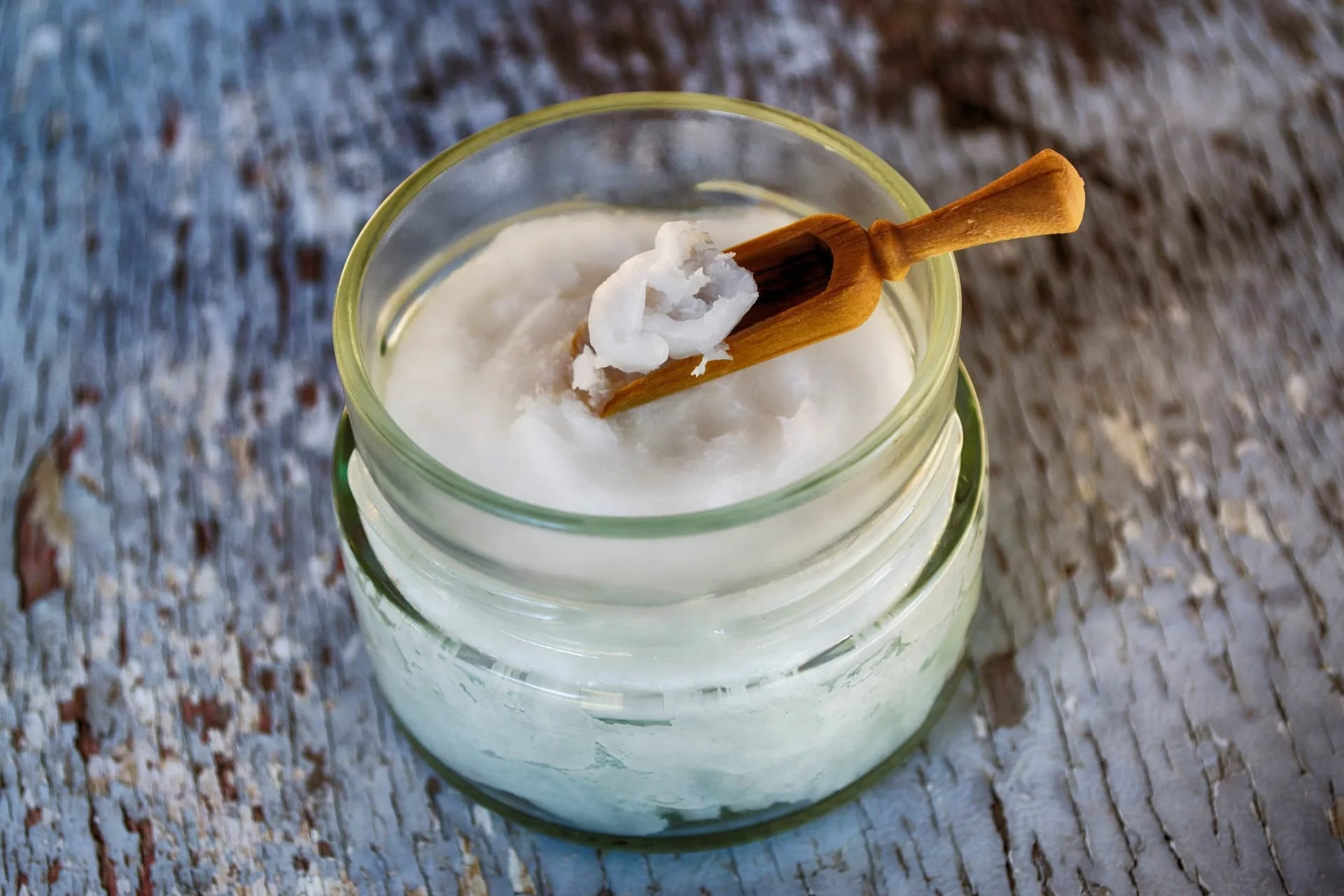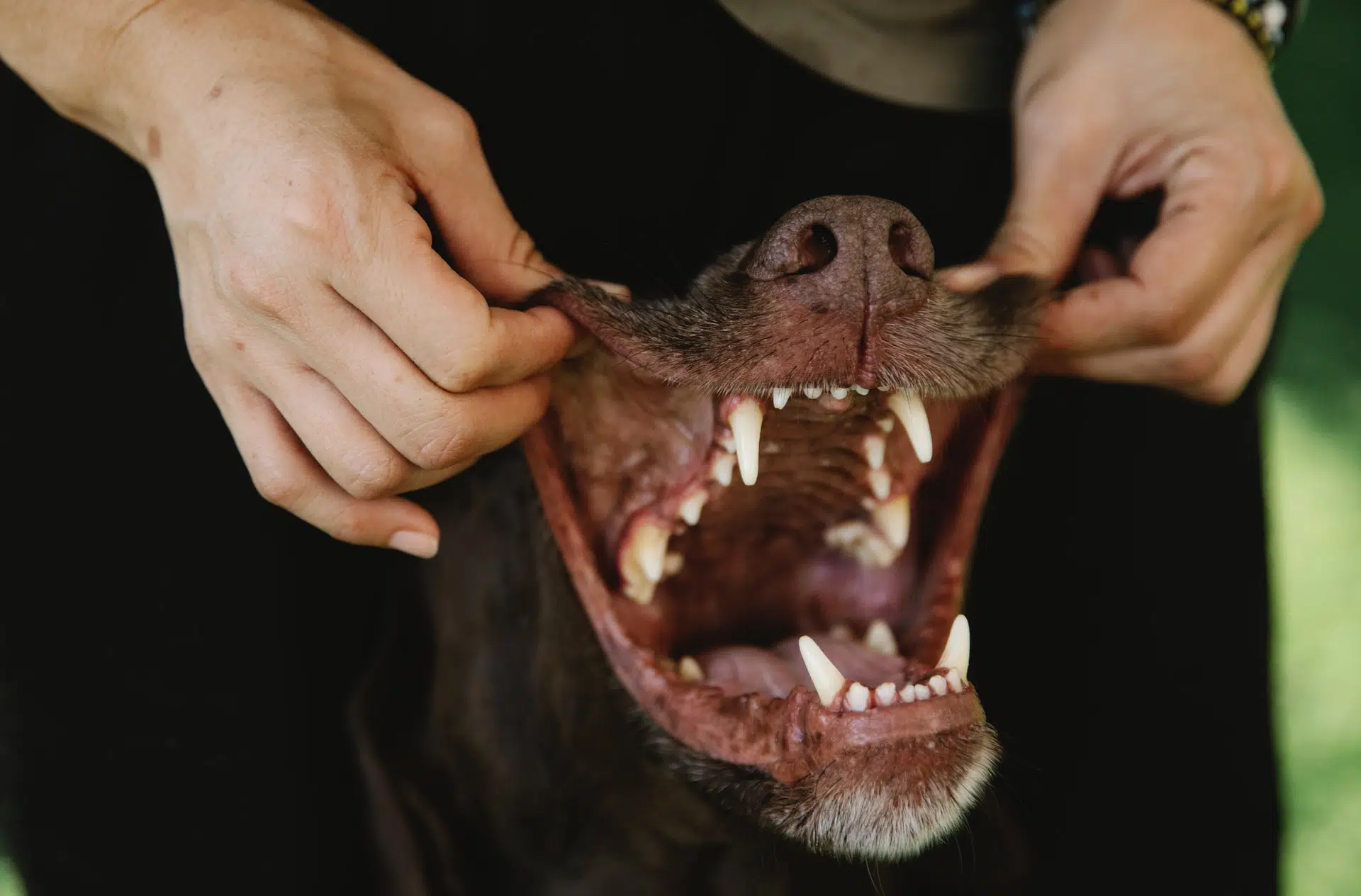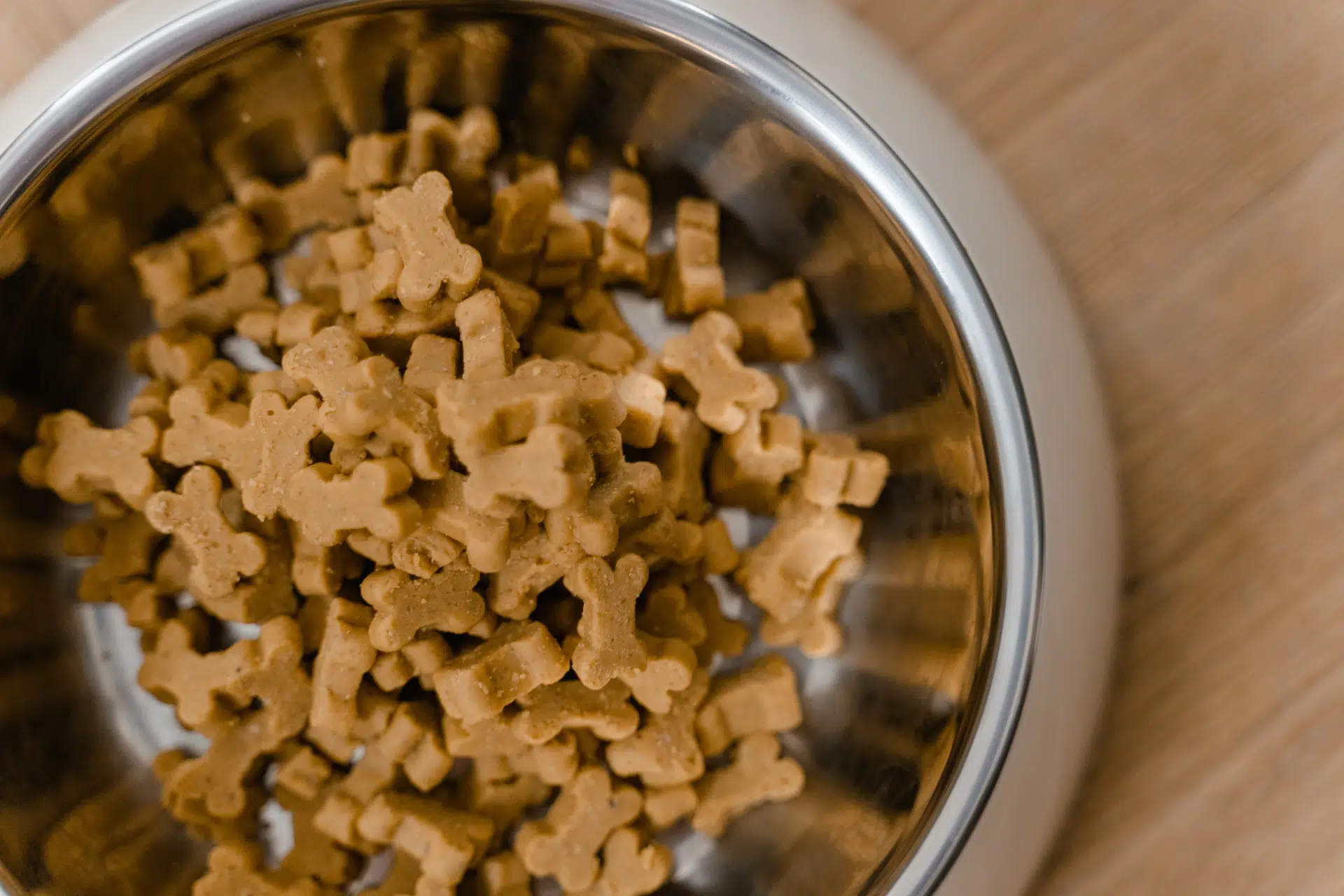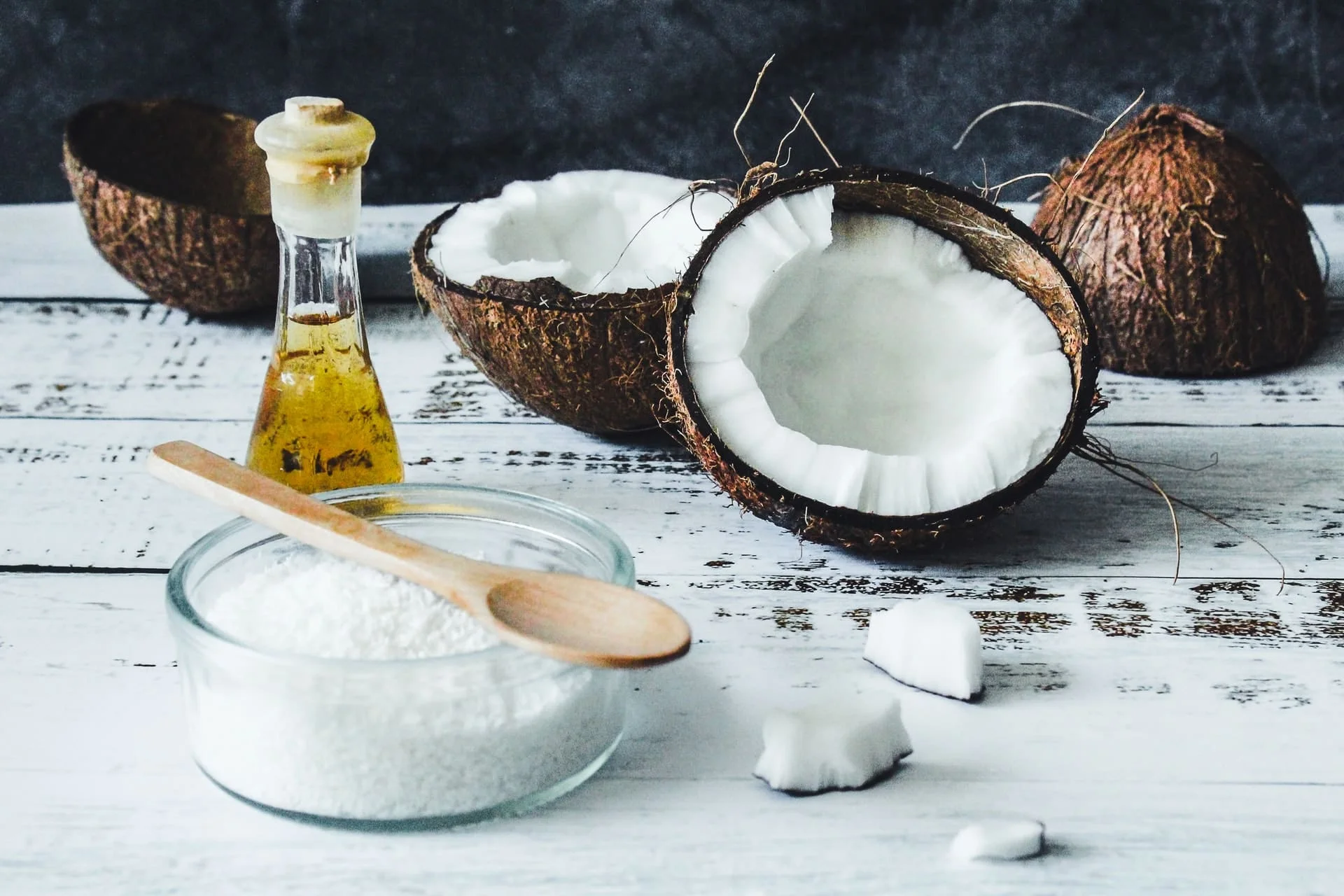If you’ve had a dog for a while now, you’ve probably had the opportunity to hear many tips related to the health of your pup. While some involved purely medical prescriptions, others relied on homemade recipes and the ingredients you already have in your kitchen.
Medicine is an effective and safe choice; I won’t try to convince you otherwise. But DIY home remedies have proven to be successful lately, too. And most of them don’t even involve complicated recipes!
Have you noticed that your dog’s coat looks problematic? You can see it scratching more often, and you even caught a few wounds on their body? These could be signs of seasonal allergies, but they can also trigger something more serious.
Many experts today recommend coconut oil for dogs skin. How effective is this ingredient, and what results can you expect?
Scroll down to find out!
Coconut Oil For Dry And Itchy Skin

Coconut oil has many health benefits, but the one you should be most interested in is related to your pup’s coat. Yes, coconut oil for dogs coats has specific medical properties that can be beneficial for your pup’s itchy skin.
When used in the right amount, it’s one of the best anti-inflammatory home remedies you can rely on here.
Now, let’s go over what dog coconut oil is good for to help you decide if you should apply it to your dog’s fur.
Healing Process
If your dog is prone to injuries, you must have wondered how to treat this problem without irritating the skin even further. What you relied on so far were, more than likely, chemicals that were stronger in composition.
It’s essential to note that not all dog breeds react the same to prescribed medication and creams. Some dog breeds have a highly sensitive coat that cannot tolerate strong chemicals prescribed by a veterinarian.
The good news is that coconut oil contains caprylic acid, which is famous for its anti-inflammatory properties and medium-chain triglycerides, giving coconut oil its healing properties.
So, apply coconut oil topically on your dog’s fur.
It’s that simple – but it works like a charm!
Small dogs, whose coat is susceptible to any foreign matter, will also benefit from dog coconut oil treatment.
Prevents Ticks, Fleas, Mites
One of the critical ways coconut oil contributes to your pup’s skin health is by protecting it from all types of parasites.
That includes everything from fleas to ticks and mites – you name it.
There are dog breeds that are very sensitive to ticks, and these tiny parasites can significantly damage their coat and general health. Relying on sprays all the time can only make matters worse.
That’s why most pet parents opt for coconut oil for dogs.
Moisturizes The Skin
Indeed, coconut oil is most often used to treat certain skin conditions such as redness, rashes, and itchy skin. But the list of benefits of coconut oil for dogs is a lot longer than that.
You can apply coconut oil topically if your dog has dry skin and you want to moisturize it.
However, before you even think about adding coconut oil to your dog’s skincare routine, be sure to check if your pup has an allergic reaction to this ingredient.
The same goes for adding coconut oil to your dog’s food.
Clearing Up Skin Conditions
Like I said earlier, coconut oil’s primary job is to protect your pup’s coat from reoccurring skin problems.
The antibacterial properties of coconut oil – and the healthy monounsaturated fatty acids – can contribute to curing some of the following health issues in dogs:
Allergic Dermatitis
This skin condition can be brought on by allergic reactions to various allergens – from grooming products and food to environmental sources.
It affects the pup’s coat aggressively, and due to intense scratching, your pup can develop a nasty rash or infection caused by harmful bacteria.
When used appropriately, coconut oil reduces allergic reactions and soothes accompanying symptoms in dogs.
Yeast Infection
You’ll notice a yeast infection almost immediately; itchy and scaly skin is pretty hard to overlook. Just take a closer look in your dog’s ear, for example.
It’s easy to get an accurate diagnosis, and this is most commonly treated with topical creams.
You can apply the oil to the “yeasty” areas – but make sure your pup doesn’t eat it. Lauric acid could make things worse.
Impetigo
Impetigo is a skin condition that’s very common in small puppies, and it can be recognized by puss-filled blisters that break due to excessive scratching.
It will help if you treat such skin conditions with an ingredient that has anti-bacterial properties. Lauric acid is one of the fatty acids in coconut oil that can help heal blisters and promote tissue repair.
Shedding & Hair Loss
If you have a breed that sheds several times throughout the year, it’s necessary to keep the pup’s skin hydrated and healthy. And reducing excessive shedding and hydrating the skin are among coconut oil’s many benefits.
Note that excessive shedding can be a symptom of an underlying problem and more severe diseases.
Get your pup checked out if you see anything out of the ordinary.
How To Apply Coconut Oil On Dog’s Skin?

Just because this is a common ingredient in your kitchen, it doesn’t mean that you can take it lightly.
So, when applying coconut oil to your dog’s fur and skin, it’s essential to learn how to do it without harming your pup.
Here are a few tips:
- It’s best to go with unrefined coconut oil rather than cold-pressed coconut oil.
- Pay attention to the expiration date. Applying expired coconut oil can result in irritated skin.
- Bring your dog into the bathroom, put some coconut oil on your hands and slightly rub them. Gently pat and apply this to your dog’s skin. A gentle massage will help distribute the coconut oil evenly. Be careful not to apply too much coconut oil – the general rule is that the amount of oil spread on one hand is enough for one quadrant of the body.
- If you don’t have a focal point, simply rub the coconut oil until the dog’s entire coat is covered.
- Let your dog’s coat soak up the coconut oil for about five minutes. Some dogs find the smell of it very appealing, and your dog might lick the oil off its coat. It would be best if you didn’t let this happen, but if your dog licks it a bit, don’t stress about it too much.
- After letting it sit for a while, do a light rinse to properly remove the excess oil from dogs coat.
Important:
You should pay attention to how much coconut oil you put on your dog’s skin – don’t overdo it! Coat health does not depend on the amount but on the regularity of applying it.
Other Possible Uses Of Coconut Oil & Coconut Oil Alternatives
Although the most common use of coconut oil is related to treating dog skin issues, pet owners can also use this nutritional ingredient for other purposes.
Here are a few more ways in which coconut oil can be beneficial for your dog:
Brushing Your Dog’s Teeth

The antibacterial properties of coconut oil make it an excellent alternative to regular dog-friendly toothpaste. In addition to being natural, it’s also delicious – and will not leave your dog with an uncomfortable feeling in its mouth.
When it comes to canine oral health, veterinarians recommend brushing your dog’s teeth up to once a week. If you run out of toothpaste, this can serve as a reliable alternative.
Coconut oil as toothpaste can help eliminate oral bacteria and protect your dog’s teeth from decay.
However, be careful regarding the amount you use.
Coating On Your Dog’s Medication

Most dog owners will agree with me when I say that giving medication to your dog can be hard work sometimes. Now, many have resorted to the peanut butter trick – and for the most part, it does the trick.
But dogs are intelligent. Do this one too many times, and they might figure out what’s up whenever you open the peanut butter jar.
So, what do you do then?
Try using coconut oils as a coating. It’s new, tasty, and, to be honest, it’s much better and healthier than the peanut butter option.
Dietary Supplement
In recent years, coconut oil has proven very useful as a dietary supplement in your dog’s meals.
Feeding coconut oil to your dog contributes to weight management thanks to the medium-chain fatty acid in it. These medium-chain fatty acids contained in coconut palm plants are the key to promoting weight loss.
Dog owners consider this one of the most significant health benefits of coconut oil, aside from being applied topically.
In addition to helping your dog lose weight, it helps absorb other vitamins and prevent digestive disorders. Also, you should feed coconut oil to your dog if you want to minimize the chances of allergic reactions occurring.
Coconut Oil – Nutrition And Types

One of the benefits of applying coconut oil to your dog’s skin is its nutritional value.
Here’s what one tablespoon of fresh coconut oil contains:
- Calories: 121
- Saturated fat: 11.2 gr
- Carbs: 0 gr
- Protein: 0 gr
- Fiber: 0 gr
- Sugar: 0 gr
- Fat: 13.5 gr
Types Of Coconut Oil
There are several types of coconut oil – and I’ll cover the ones that pet parents need to know about below.
Virgin Coconut Oil
Virgin coconut oil is the best option – for you and your pup. This type of oil is the least processed and consists of coconut meat extracted from mature coconuts.
Refined Coconut Oil
Unlike the previous one, this type of coconut oil is made from dehydrated coconut kernels. You can include this in your dog’s diet since coconut oil gently elevates the metabolism, but be careful not to overdo it.
Refined coconut oil should not be a part of your dog’s daily meals.
Organic Coconut Oil
You’ve probably noticed the growing interest in organic products lately – and for a good reason. When it comes to oils, the most significant advantage of organic coconut oil is that it’s 100% pesticide-free and doesn’t contain any GMO ingredients.
That’s a considerable advantage to dogs with severe skin problems.
If your dog has dry skin, try rubbing this type of oil on the affected areas.
You’ll see results after a few weeks!
Homemade Coconut Oil
It’s worth noting that stores are not the only place where you can get coconut oil. You can also make the DIY version at home by boiling coconut milk.
Although the anti-fungal effects of homemade coconut oil are sufficient, the shelf life is limited to a couple of days. So, pick your battles.
The Risks Of Coconut Oil

In addition to the range of health benefits that come with applying coconut oil to your dog’s skin, there are a couple of potential health threats you should be aware of here.
As I mentioned initially, the smell of coconut oil is tempting to many dog breeds, and your pup might try to lick it off its coat.
Now, in most cases, that’s not a cause for alarm.
But if your pup suffers from pancreatitis, you should avoid this treatment. Consumption of coconut oil – even the tiniest amount – could result in a greasy stool and diarrhea.
Another “danger” of coconut oil has to do with your dog’s body weight. Monosaturated fatty acids are healthy only if you pay attention to the intake.
And let’s not forget dog allergies:
Before you decide on coconut oil as a cream or supplement in your dog’s diet, you should do dog allergy testing.
Coconut Oil On Dog’s Skin – Conclusion
By now, you should be informed what makes coconut oil good not only for your dog’s skin but for a range of other health-related issues.
The primary benefit of coconut oil for dogs skin is that it contributes to moisturizing, supports wound healing, and offers antibacterial and anti-fungal properties. Even more so, it makes for an excellent dietary supplement; when used in moderation, it can prevent weight gain, which is a problem in some dog breeds.
Similar reading:
Are Essential Oils Safe For Dogs?


